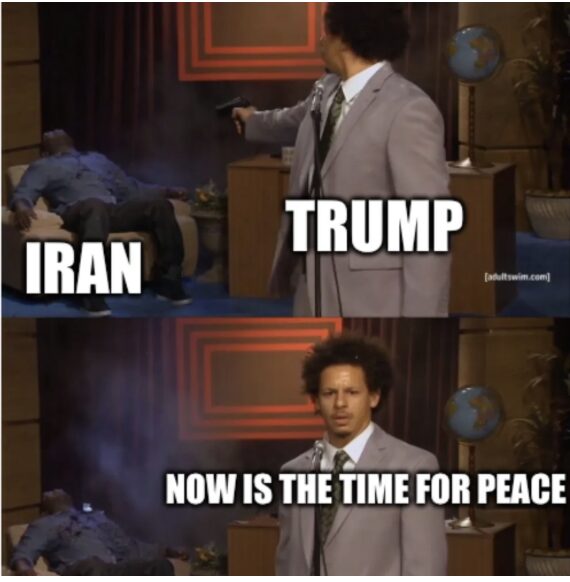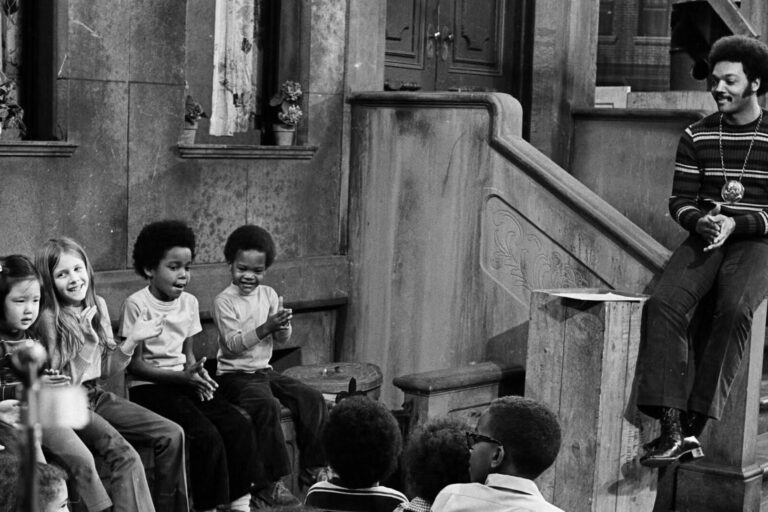Proposal: Increase the number of MPs in Parliament to 150-180.
There is no logic to this. Is there a magic number of MPs? If so what is it, and how do we come to that magic number? Did God reveal it to Geoffrey Palmer on the top of Mount Victoria? What reason is there to suppose that increasing the quantity of parliamentarians by some 30% will improve their intellectual or moral quality? Will it do anything more than give another 50 politicians and their various hangers on a vested interest in the continuation of the colonialist system? Would that be enough to make a difference? Palmer implicitly admits that this suggestion is just a little bit daft. He writes “Even more MPs (yes, I know)”. He does not even have to canvas the arguments against. “Yes, I know” says it all.
The patient is suffering from scurvy. He has been on a weekly ration of of 120 ounces of white rice, and nothing else. White rice contains only tiny amounts of the Vitamin C necessary to prevent scurvy yet in order to raise the patient’s intake of Vitamin, the good doctor recommends increasing his weekly consumption of rice from 120 ounces to 150 or 180 ounces. It sounds plausible until you stop to think about it for a few milliseconds.
Proposal: Voting to be made compulsory.
Is it really better to vote than to not vote, regardless of how one votes? To be specific, is it better to vote for a genocidal fascist than not to vote at all? Because that is the logic of compulsory voting. This proposal has no better aim than to give the false appearance of public consent to the processes of the colonialist system of government. The powers-that-be want to be able to plausibly claim that 95% of people participate in the system even if it means that they have to be dragged to the polling station kicking and screaming. Dr Palmer would rather force people to vote than find them a good reason to vote. This proposal is not about advancing democracy. On the contrary it is a tacit acknowledgement of the undemocratic character of the Westminster system of government.
The clinic offers the patient a panel of medical practitioners consisting of a homeopath, an iridologist a chiropractor and an osteopath. The patient has tried all four and found they did nothing to ameliorate his condition. However the clinic demands that he must put select one of the four. There is a rider that if he elects the homeopath he may be put under the iridologist, and so on. Any choice he makes may be disallowed. Never the less he must choose or suffer the penalty.
Proposal: Extend the maximum term of Parliament from three years to four.
Another arbitrary recommendation from the good doctor. If four years is better than three, then why not five years? Why not ten or twenty? Is this another magic number given to Dr Palmer on the summit of Mount Victoria? It is said that a week is a long time in politics. So what is four years? An eternity? Certainly time to do a lot of damage. And also time to stow away a fair amount of loot, buy a residential rental property or two, and make connections for a future career as a company director, lobbyist, academic, public relations person or executive of a non-governmental organisation. The terms of office for a legislature or an executive (which are effectively the same in the New Zealand system) stand as points on a continuum. At one end we have continuous election, and a true democracy where the people have the government at their beck and call. At the other end we have appointment “for life” which is an effective dictatorship. A term of 20 years, covering an entire generation, would also be tantamount to dictatorship. Governments tend to push out the term of office as far as they can, to reduce the extent to which they must be accountable to the people. Some get away with five years. Most settle for three or four. But all of them seek to postpone for as long as possible the time when the voters are given the opportunity to throw them out. There is now a consensus among New Zealand’s colonialist politicians in favour of a four year term. If they thought they could get away with asking for five years they would. They are quite frank about why they want a four year term. It is so that they can “get the job done” before they have to answer to the electorate. This proposal aims to strangle an already debilitated and hapless democracy.
The patient is put onto the increased allocation of white rice, chooses the iridologist as his medical practitioner, is put under the homeopath, and is then told not present to the clinic again for another four years. (The new diet must be “given time to work”).
Proposal: Make the Speaker of the House a neutral umpire by enforcing appointment by secret ballot in the House, not on the nomination of the government of the day.
One of the strengths of parliament per se is transparency. The public can at least know what their “representatives” are doing on their behalf, even if they have no control. They can know which members vote for a bill, which members vote against, and which abstain. Through motions of confidence, the public know which members support the Prime Minister, the cabinet and thus the government. They also know which members support the Speaker who functions as the administrator and moderator of parliament. All this is possible because there is no secret ballot in parliament. Contrast this with the manner in which the public involve in the Westminster political process through the secret ballot. That opens the way to electoral fraud and false allegations of fraud, civil strife, insurrection and coup d’état. If the Speaker is elected by secret ballot a thorough-going fascist could take control of the House and no one would know if he had been truly elected or, if he was, which members of the House were responsible for his election. That would be the end of any vestige of democracy. The proper way for us to go is to make the entire system transparent at all levels, not to introduce the mischievous secret ballot into the institution of parliament itself.
Proposal: Require schools to teach programmes of civics to provide better understanding of how the system of government works and empower young people to participate in it.
This is an invitation to biased education. “A better understanding of how the system works” is different to “a critical understanding of how systems work”. It is focused on a particular system, “the” system, in other words the “current” system, the Westminster system of government. To “empower” (encourage?) young people “to participate in” the current system is to assume that they should participate, and therefore that the system is a system worth supporting. At a time when large numbers of older people (over 30% of the adult population by any measure) are coming to doubt those assumptions the proposal looks like a desperate attempt to recruit a supposedly more naive generation of young people into a failing system.
Proposal: Voting rights to be extended to those aged 16 and over.
Why 16? Why not 15 or 14? Yet another arbitrary number from Dr Palmer, supported by all kinds of false logic. ” at 15 they can leave school with parental permission, and at 16 they can qualify as an adult worker, consent to sex, get married, leave home, make decisions about medical treatment, leave school, and apply for a firearms licence” Dr Palmer intones. In fact in New Zealand law these supposed rights are subject to conditions and restrictions, and do not become unconditional before the age of 18. Full majority is only attained at that age of 20. As a lawyer Dr Palmer knows this. As a politician he chooses to dissemble. Marriage at 16 is conditional upon parental approval, or a Court order. A firearms license is subject to a supposedly rigorous test of mental fitness. The right to vote is different. If it is to mean anything it must be unconditional. Even more fatuous is the argument “At 14 years-old a New Zealander can be held criminally responsible for breaking any law”. That is because before the age of 14 a person is not held to have a proper understanding of the difference between right and wrong, or a proper ability to control his or her own actions. Can we assume that understanding and self-restraint becomes fully established in the two years between the ages of 14 and 16 so that a 16 year old has the ability to use the vote “responsibly”? Perhaps we can. Or perhaps not. There is very little empirical evidence and the only sensible response is “At any age, whether 14, 16 or 64, it depends on the individual case”. This exposes the real problem with the Westminster system which is that it enables individual voters of any age to act irresponsibly, and therefore we are periodically asked to address the wrong question of “Who should be allowed to vote?”. In past eras in New Zealand this question has been answered in terms of gender (male suffrage), wealth (property owners) and age (persons over the age of majority). At times it is suggested there should be a maximum age of suffrage or a test of cognitive ability. It is also argued that imprisoned criminals should not have the vote, a test which disgracefully denied the vote to a twentieth century Prime Minister, Peter Fraser. Any limitation on the suffrage is fraught with peril to democracy, and yet Westminster democracy also faces danger of corruption through unlimited suffrage. So what is the answer? It lies in making responsibility an integral part of the political system through the open ballot and continuous election, not in arbitrary age or other limits on suffrage.
Furthermore none of the existing rights of 16 year olds cited by Dr Palmer imply a right to impose the 16 year old’s own choice upon others, as is the case with voting in a parliamentary election. This exposes a crucial but deliberately ignored fact about the Westminster system of government. Voting is not really about making one’s own decisions. It is about managing, by hook or by crook, to impose one’s choice upon others. Under this system you don’t necessarily get what you choose, unless you happen to be lucky. You vote Labour and you get National. You vote National and you get ACT. You vote Green and you get Labour. If you are one of the “lucky” ones who voted Labour and got Labour, or voted ACT and got ACT then you have imposed your choice on those who voted differently. The only ones to benefit are the politicians. Do we want more young people to drawn into this real life version of the Hunger Games?
Dr Palmer’s proposal is not based on principle. It is an attempt to recruit another 3% of the population into a political system which at least 30% have already walked away from.
Proposal: Reform the law relating to the disclosure of donations for political parties by limiting the amount that can be donated by an individual to prevent wealthy individuals and pressure groups from having undue influence upon policy.
Dr Palmer is rather vague on this point. Is it a question of “the law relating to … disclosure” or is it about “limiting the amount that can be donated”? What is “undue” influence? If Dr Palmer really wanted to limit or disrupt that influence he could channel all political donations truly anonymously through a state body. That might have some effect. The alternative of donation transparency (disclosure) is difficult to enforce, and would have a different kind of outcome, but could also be beneficial to democracy. A third option is limits or outright bans on political donations, which could be coupled with a fourth being state funding of political parties. The last two options already exist through the mechanisms of limits on election spending and access to media through rules or guidance laid down by the Electoral Commission. These mechanisms have the perverse yet fully intended effect of restricting the prospects of new entrants into the political system. However just as water will always find a way to the sea, so long as we suffer under the Westminster system of government, those at the top of the financial system will find a way to exercise influence over those on the neighbouring heights of the political system.
As the saying goes, though without a hint of irony in this case: “Undue influence is not a bug. It’s a feature of the system”. The system works through “donations” and the influence of “wealthy individuals and pressure groups”. Dr Palmer knows this. This proposal is deliberately vague, and like the other proposals, would make no fundamental difference to the working of the system.
Proposal: Amend the Public Service Act 2020 to require public servants to provide full and frank advice on all policy proposals considered by the government, which should be made publicly available after the decisions have been made.
Officials already have too much say in the decisions of governments. It was public servants who pushed for Rogernomics, the failed war against Afghanistan and all kinds of anti-democratic legislation. For the last forty years “public servants” have led politicians by the nose down the path to economic and social catastrophe. Together with the lobbyists they form a cosy club from which the public are excluded. Politicians have the right to seek advice from officials. However they should not be obliged to seek such advice or to take it when offered. Most importantly, they should not be allowed to claim, as they so often do, that their bad or indefensible decisions were based on “official advice” and that therefore they have no culpability.
Proposal: Require individuals and organisations who lobby MPs and government servants be catalogued on a publicly available register recording their activities.
This proposal suffers from only one disadvantage: it would legitimize a practice which has no place in a real democracy. Lobbying for hire should be a criminal offence. The only publicly available register recording their activities should be the records of the District Court.
Sir Geoffrey Palmer’s proposals are a sign of desperation in the colonialist regime. He himself acknowledges that “Public trust in Parliament has fallen in recent years, according to Statistics New Zealand’s General Social Survey. In 2023 it stood at 4.3 out of 10 on the institutional trust scale, down from 4.7 in 2021 – a larger fall than most institutions”. He also notes ” the decline of democracies around the world”. The condition is real, but the prescription for a cure is absurd. It will not save the patient. It might even make matters worse.
Geoff Fischer is a forestry worker residing at Manaia, Te Tara-o-te-ika a-Maui.






I would have thought that term limits on politicians were more effective than all his ideas added together and cubed. That, and referendums binding on the political class.
Palmer has constantly been against a written constitution for NZ claiming that the Westminster convention we operate under prevents the sovereignty of parliament being abrogated by the courts. He sees this as a good thing. True a constitution can be a negative if treated as an unchanging document where it needs to be interpreted through the societal norms of the century in which it was written. On the other hand it can mean that basic rights are guaranteed and not subject to the whims of a party trying to negotiate a coalition. One example he cites is that the 1984 labour goverment could have been prevented carrying out its reforms. A great argument for a constitution if ever I have heard one.
Lower house of “list mps” t 100. All electorate MPs moved to the upper house.
that way the individuals who have been elected as representatives of their people have more power. And All we need to do is convert the “concerned ratepayer/worker” vote into a movement that elects someone they trust and know in their electorate – from outside the parties. W
e need people who are willing to build a Kantian democracy where cooperation comes first instead of the competition of the jungle. The countries wealth pays for the country’s needs first, only the SURPLUS is left for competition in the marketplace.
There should not be list MPS .If we want to be an MP we should be elected not just coat tailing as is the case with the river of filth party who have unelected Ministers in the current government .And look at the result with cancer being encouraged and the abuse of young people being incouraged .
Can the credible left wing alternative please stand up?
They can’t as are all in wheelchairs probably, ended up in a sanatorium.
Well done Geoff! You’ve seen straight through Palmer.
He was once touted as a constitutional expert, yet he was the one who casually slipped all those “according to the principles of the treaty” clauses into acts of parliament without defining what they were. An elementary error that a first-year law student would lose marks for.
Perhaps he knew about you waiting in the sidelines Andrew; representative of those who would raise barriers against Maori retaining even the smaller citizenship that resulted from the Tiriti than they expected, as an eternal thing.
And he should have made them stronger and unable to be taken away .What we are doing now is apathied by another name .
Donations only from real people not trusts companies and corporations. Donation must be from a named person recorded on a register and a limit on the amount $100 or $200 definitely not $1000.
More MPs wtf. Why? Surely 90 was enough. More MPs spread the net wider do you get higher calibre people or more dross?
This idea of the colonialist parliament. With 27.5% of MPs being Maori and Maori only 17% of the population, are Maori over-represented in the Westminster system? 😉
It is a colonialist parliament because it is subject to the British monarch, King Charles III, as Head of State of the Realm of New Zealand, to whom all elected members of parliament must pledge allegiance or forfeit their seats in the House. It is a colonialist institution, and the ethnicity of its members is immaterial to that fact.
On the face of it yes but 50 years after the Queen dismissed the Prime Minister of Australia do you think that could fly here? Or does the pact between Maori and the British Crown make it more likely that it could occur here?
The reserve powers will come into effect in a crisis. If New Zealand never has to face a serious political crisis the reserve powers will remain in abeyance. However, that is a very big “if”.
Relations between Maori and the British Crown stand on the ground of both the Treaty and te Tiriti. That is to say, both versions are relevant. On the basis of the English version of the Treaty some Maori have fought for the British Crown in two world wars and many smaller conflicts. On the basis of the Maori version other Maori continue to demand their right to rangatiratanga.
The British monarchy itself has been a recourse for Maori of all persuasions who have been seeking redress for the transgressions of New Zealand Governors and governments. Those petitions have been politely but firmly and consistently rebuffed by successive British monarchs.
In short, the “pact” between Maori and the British monarchy, if that is what you are talking about, is complex and problematic.
I personally choose to cut the Gordian knot by saying that rangatiratanga remains intact from 1835, the British claim to sovereignty is baseless, and the New Zealand state, the Realm of New Zealand, is therefore illegitimate.
However it is clear that not everyone takes that approach, and anything could happen “between Maori and the British Crown”. That is why we need to progress a serious conversation on the constitution of Aotearoa.
That GF puts clearly things observed but not understood over decades; ignorance accreting to hardness and unyielding insouciance seen on both sides. We need more honesty and hui, then agreement on the doey.
I’ve had two of Sir Geoffrey’s books* from the library recently. They are written with a lot of thought, and are heavy tomes. But I haven’t time to read every word – read enough to discover that they are based on 20th century thinking (which has been wrong as evidenced by the mess we are in). And further he is thinking of improvements within the parameters of that thinking, so as to that it met all the right points for a good legal framework.
However that is not what will provide the system we need now. We need fewer laws and those will provide boundaries. These laws will have an over-riding ceiling of providing a fair and reasonable limit to people’s or corpse’s actions which will deteriorate others’ living conditions (as considered to be what a good society is) not rigid laws based on ideological decisions unrelated to real life and humanity. We would reduce laws to what was needed, and pilot ones having or not having some law, to see if the outcome is what was wanted for fairness and also the good of individuals as well as society.
* The books were – Reform A Memoir 2013 and
Democracy in Aotearoa New Zealand – A Survival Guide 2022
Very few of these proposals make sense. The others serve to show Palmer is genuinely ‘losing it’.
Why can’t full majority be given at 18?
Even back in the 1980s I found listening to Palmer to be a fine sedative.
Palmer had his day.
For an accurate account of our country today…
https://www.stuff.co.nz/nz-news/360542182/verity-johnson-labour-dont-waste-crisis
Maybe Palmer should have considered not covering up the Operation Burnham massacre, then he could be taken seriously?
More of the same from Palmer, the man who rewrote rules on how parliament worked to “professionalise” it. I’m old enough to remember listening to real debate in parliament, this man was largely responsible for making sure that became superficial. Now the idiot raises more proposals to give the illusion of more democracy. Beware.